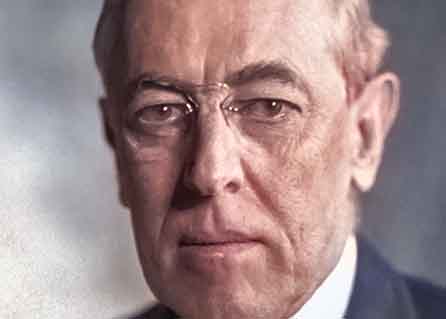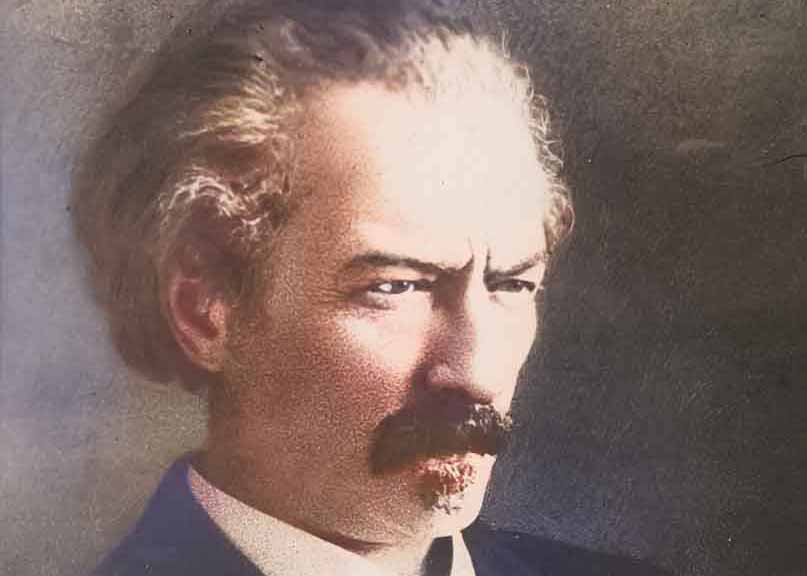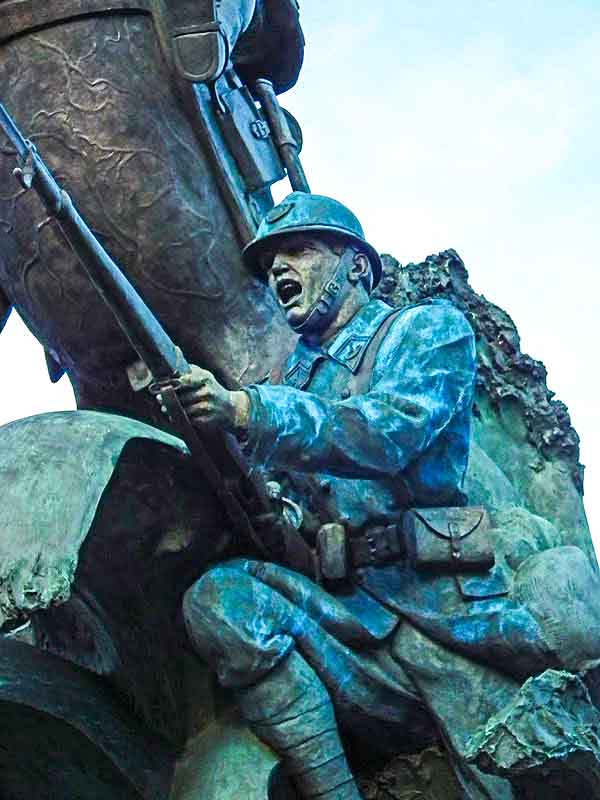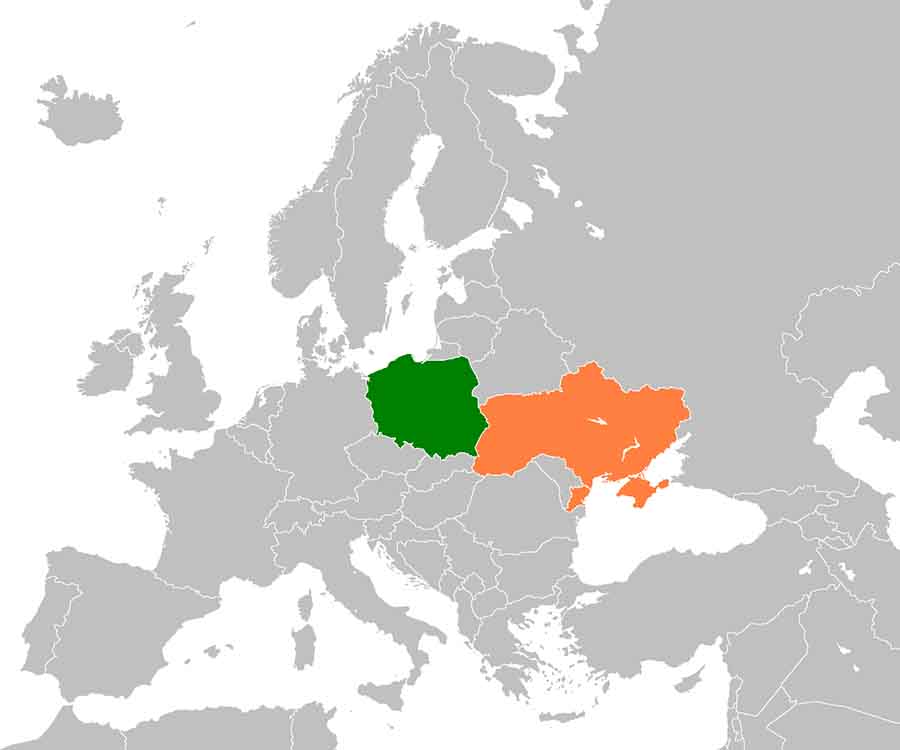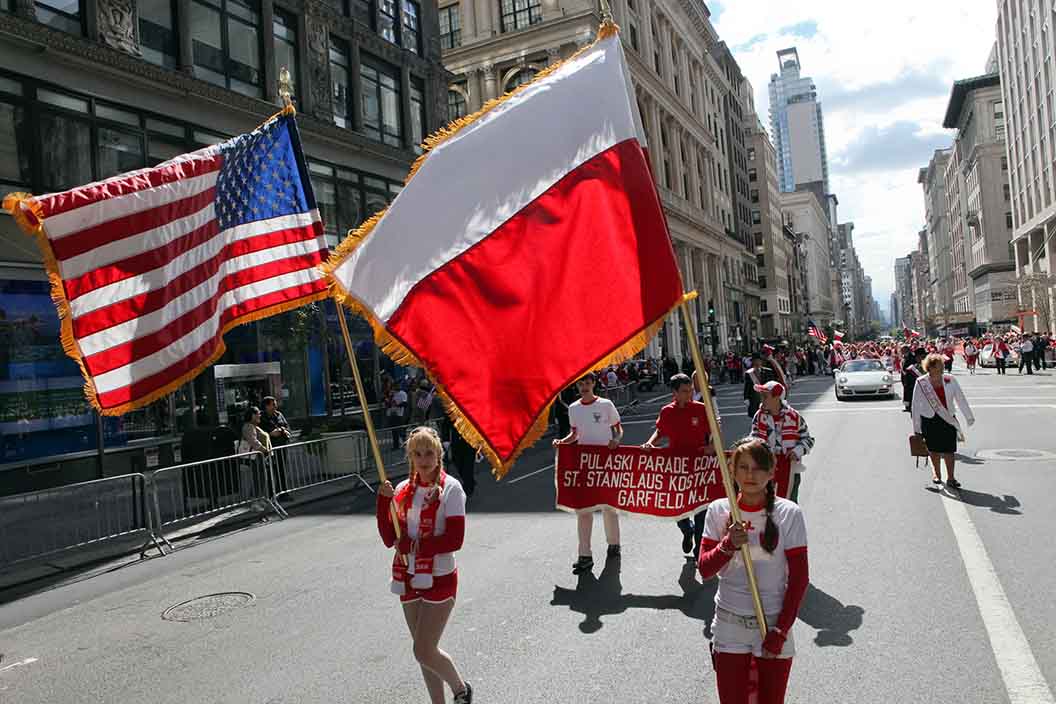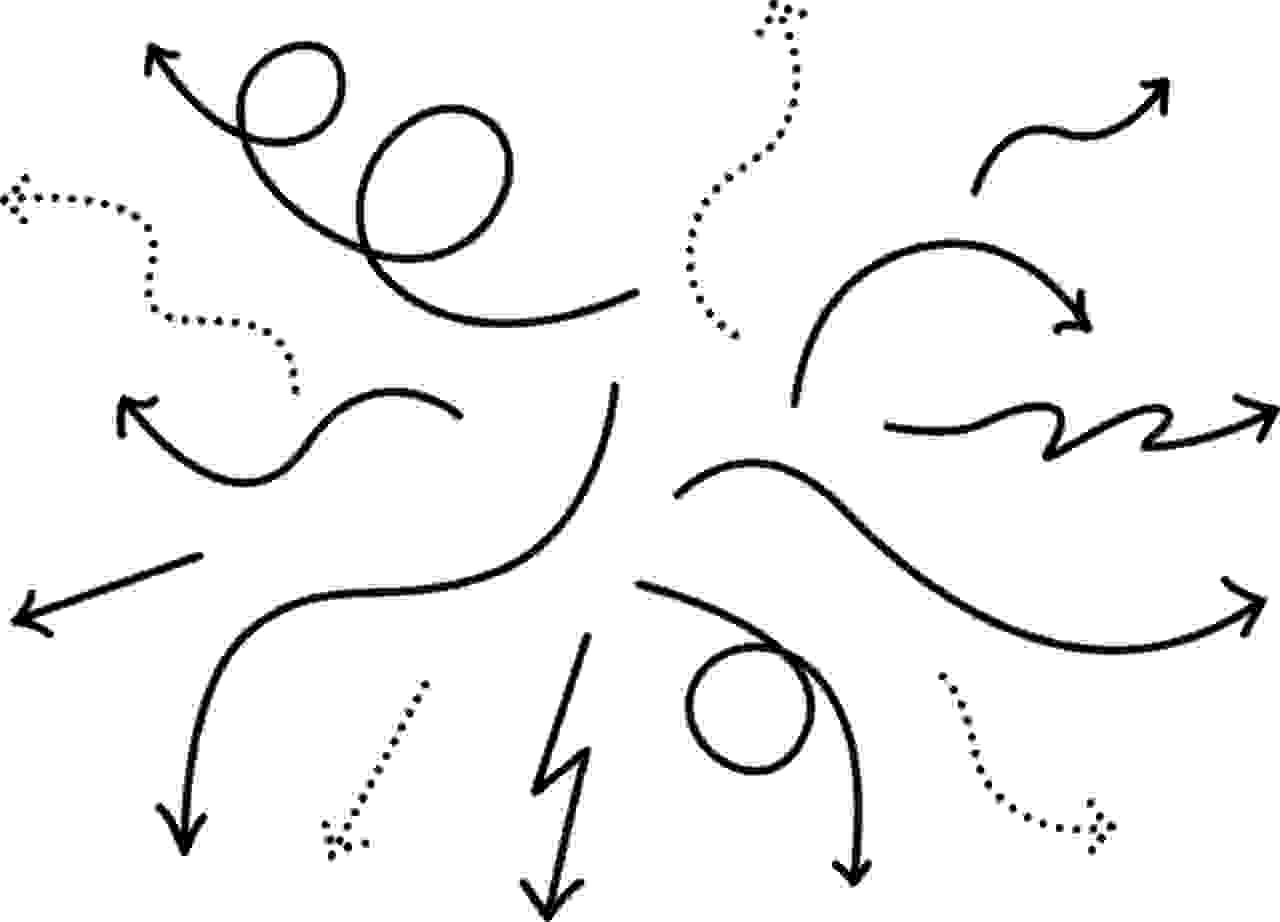On March 4, 1944, a preparatory conference for the establishment of the Polish American Congress was held in Chicago, attended by representatives of the entire spectrum of Polish community life, together with the clergy and chief editors of the Polish community press. At this meeting, Karol Rozmarek gave a charismatic speech and uttered the historic words:
The defense of Poland is our most sacred and most important duty today. It depends on us whether this defense will be just a patriotic phrase or whether it will be a real defense, one for which American Polonia will not have to be ashamed in the future.
At the founding congress of the Polish American Congress (Kongres Polonii Amerykańskiej, KPA), held in Buffalo on May 28, 29 and 30, 1944, the Polish community leaders, with the massive support of the then 6 million Polish community, outlined universal goals for the Polish American community. Here is an excerpt:
As Americans with Polish blood flowing in our veins, we solemnly pledge to provide the greatest aid to the Polish Nation. In order to give real expression to our feelings, we establish the Polish American Congress and for this purpose we adopt these laws.
A number of working committees were appointed and directions and strategies for many years were outlined. The essence of uniting and creating a strong representation of the Polish community in the United States was to influence and inform American society and the world about the current situation in Poland during the war and during the Soviet occupation. The American Polonia assumed the important duty of representing the historical truth and preserving the Polish national identity. Kazimierz Łukomski, vice-president of the KPA, expressed it accurately in the following words:
Our common duty is to: represent the real interests and aspirations of the Polish nation to the world and inform about the development of the situation in Poland and its aspirations, needs and rights.
These goals, as the current situation shows, have never lost their relevance.
We do not have to be ashamed of Rozmarek, Mazewski, Moskal and hundreds of other patriots devoted to the Polish cause in various corners of the United States. We had a huge influence on American politics in the form of Senator Edmund Muske, Congressman Klemens Zabłocki, Zbigniew Brzeziński and many others.
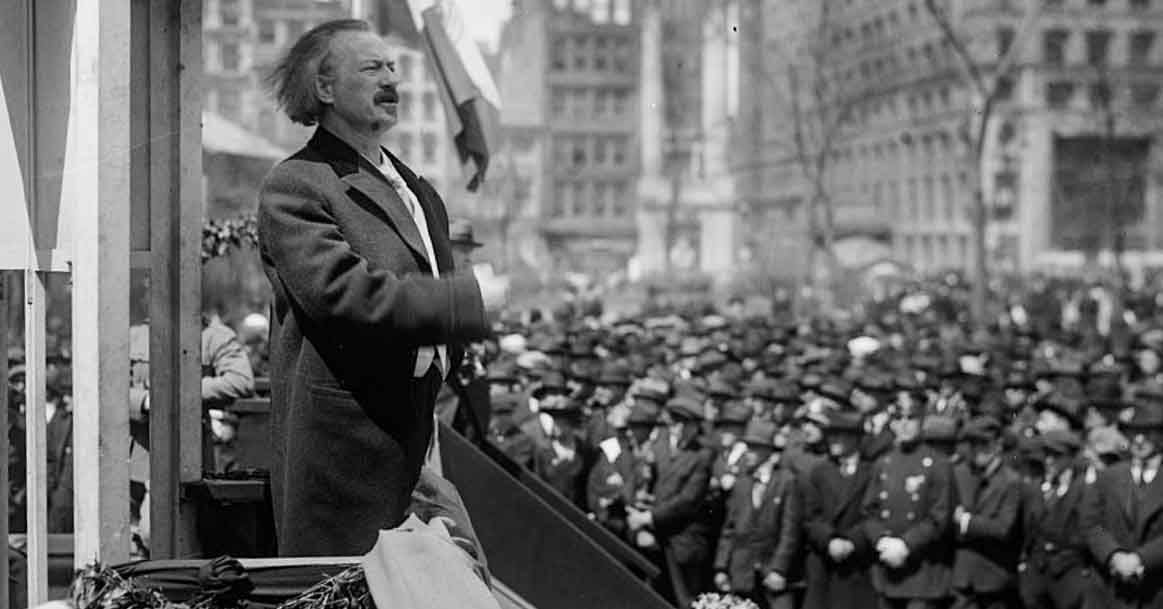
Ignacy Jan Paderewski (1860-1941), Polish pianist, composer, and statesman speaking to Polonia in 1915 (Source: Library of Congress)
From 1910, it was the American Polonia who worked out the text of the memorandum, which Paderewski then presented to President Wilson, and thus, also thanks to the American Polonia, the Polish argument was successfully presented at the Congress of Versailles.
It was Edward Moskal, since 1994, who lobbied with Americans of Polish descent and all friends of Poland to throw onto the desks of the American administration a petition signed by 9 million American citizens for Poland's admission to NATO. It was also Edward Moskal, as the only Pole, who presented the thesis that Poland's accession to the European Union may significantly limit Poland's sovereignty.
The list of merits, well-implemented ideas, and hundreds of millions of dollars sent to Poland can be enumerated for a long time. As can excellent scientific articles and radio broadcasts about Katyn, the Armed Forces in the West, the Home Army, the National Armed Forces, the crimes of the gulags, the Holocaust and Polish traitors in the service of Moscow, and many, many other topics related to Polish national identity.
It is worth mentioning that the first person who wrote about Inka Śledzikówna and the "cursed soldiers" was Col. Edmund Banasikowski (charismatic president of KPA in Wisconsin) in his book: "Na zew Ziemi Wileńskiej". It is here that the most important book of Polish geopolitics was created: "Józef Piłsudski, European Federalist, 1918-1922" published in English by Hoover Institution Press, Stanford University, in 1969. The author of this important book was my mentor, Marian Kamil Dziewanowski, writer and journalist, participant in the September Campaign, officer of the Polish Armed Forces in the West, professor at the University of Boston and the University of Wisconsin in Milwaukee.
Since 2005, since the death of Edward Moskal, we can talk about the decline and progressive assimilation of the 10 million diaspora in America. Since Poland's accession to the European Union, we notice that the Polish government's interest in the Polish diaspora has decreased significantly. Research work on the Polish diaspora has been abruptly stopped, and the knowledge about it among Poles in Poland is insufficient.
As one liberal diplomat from Krakow explained to me, the vectors of foreign policy have shifted from focusing on diasporas to replacing them with multicultural issues. And it became clear why there is no political cooperation with the Polish diaspora.
On the other hand, Polonia itself shuns politics. There are no political goals, let alone a strategic vision for development. The activity of Polonia is limited to traditional balls, taking selfies, and getting excited about new gadgets. Polonia's policy, on the other hand, boils down to simply persevering and making sure that no one invents anything and does not compel the "persistent" to any specific job.
The Polish parliamentary elections in 2019 were exceptional. For the first time in history, two parties from Poland, i.e. PiS (Prawo i Sprawiedliwość, Law and Order) and The Confederation (Konfederacja), nominated their Polish diaspora candidates to the Polish Sejm and Senate, but in the absence of the Confederation's promotional campaign, most candidates had no chance.
PiS fielded one candidate, a well-known Polish activist from Chicago, prof. Marek Rudnicki. In the absence of changes in the method of electing the Polonia candidate, as it is, for example, guaranteed to the German minority, the Polonia candidate lost, fighting in the famous District 44, dominated by left-wing liberals, where no other candidate ever had a chance to win against a liberal candidate. For prof. Rudnicki there was no responsible plan-B in case of defeat, and the whole matter of the elections to the Senate in 2019 is a blunder of the "all-knowing" in Warsaw. But enough complaining.
Putin's ultimatum — the end of the sovereignty of Central and Eastern European countries.
Poland and other countries of this region are currently in a difficult geopolitical situation.
I would like to remind everyone that on December 10, 2021, the Russian Ministry of Foreign Affairs issued a statement on the "conditions for the future dialogue of the Russian Federation with the US and other Western countries" on European security. Russia demanded from the United States to block any further enlargement of the North Atlantic Treaty Organization in the eastern direction, and to refrain from admitting to the Pact the states that had previously been part of the Union of Soviet Socialist Republics (USSR). The Americans were also to guarantee that neither they, nor NATO, would conduct any military activity on the territory of the former Soviet republics, install any bases, conduct exercises, or supply these now sovereign states with weapons.
The Kremlin also demanded the limitation of sovereignty not only of the former republics of the USSR. In the text of the "agreement" that Russia wanted to impose on the North Atlantic Pact, there was an obligation that the states that were part of NATO on May 27, 1997 (the summit of the Pact with Russia's participation) "will not deploy their armed forces and weapons on the territory of any other European country" if Russia does not agree to it.
Russia, threatening war, issued an ultimatum to the United States and NATO. It wanted to limit the sovereignty of the former republics of the USSR and the whole of Central and Eastern Europe, which in turn meant a return to the "Brezhnev doctrine" of 1968.
With this ultimatum, the Russians tried to impose their vision of the world order on the West, and above all, on the USA. This was the case at the Congress of Vienna in 1815 or at the Yalta Conference 76 years ago, when the hegemons determined the world order in accordance with their interests and over the heads of smaller states and nations. The effect of this ultimatum was to deprive NATO of the possibility of further enlargement and to reduce the military potential of the alliance in Central and Eastern Europe to the state from before 1997.
NATO's deterrence policy has failed. Russia launched a military invasion of Ukraine on February 24, 2022, which was an escalation of a war that had been going on since 2014. The goal of this war is Putin's imperial dreams of creating a "Soviet Union 2.0".
The war in Ukraine continues and NATO is committed to supporting Ukraine, but a plan to defend NATO's eastern flank is virtually non-existent, as noted by Estonian Prime Minister Kaja Kallas, who already criticized NATO's current plan in June. Kallas said that the current NATO defense plans for Lithuania, Latvia and Estonia assume that they will be destroyed and then liberated after 180 days. "It would mean the complete destruction of our countries and culture."
In light of the current military operations in Ukraine, i.e. the complete destruction of energy infrastructure and residential buildings, schools and hospitals, this would mean the effective annihilation of the Baltic states.
Despite Russian war crimes, murders of civilians, abductions of children and transporting them deep into Russia, destruction of energy infrastructure, housing, schools and hospitals, the NATO-Russia pact is still in force, and Russia itself is still an important member of the UN Security Council. Why?
Does Polish emigration still have an important role to play?
Polish emigrants face new challenges worthy of the 21st century. Time to redefine the goals.
Instead of dealing with polka, sausage and dumplings, or posting beautiful views of Poland on Facebook, it's time to do something more ambitious, in line with the great ethos of Polish emigration. It's time to ask yourself: what will the American Polonia be like in 10, 20 years? And what is necessary for this population of 10 million not to lose contact with Poland and not to be completely assimilated? Here are some ideas:
In order to guarantee Polish interests, reform of the Polish army, political, military and economic cooperation, the idea of the Intermarium, and the strategic presence of the United States on NATO's eastern flank, it is necessary to conduct an active and assertive state policy, Polish diplomacy and coordinated influence of the Polish diaspora on any administration in Washington, Berlin, Paris, or Ottawa.
A serious problem of American Polonia is the lack of leadership at the national and state levels. It is necessary to establish a think-tank with a strong program of schools of Polish community leaders, run by already recognized Polish community leaders from the USA. The essence of educating leaders is their future political career in the USA. We must again have our representation in American institutions of power: in Congress, Senate and state authorities, on the side of both Democrats and Republicans.
The most important thing is to create a modern vision for the Polish diaspora in the world, which would effectively and actively support the foreign policy of the Polish state. It is important to set goals and outline the scale of their importance. It is about the basics of the policy of the Polish diaspora in the USA and in the world. It cannot be that the influential "sly fox" pursues his goal, which leads the entire Polonia astray.
Without bilingual media, the American Polonia, i.e. 9 million people who do not speak Polish, have no chance of maintaining their identity as an important ethnic group in the USA. There is no source of knowledge about Polish identity. Projects created in Poland will never meet the conditions that will be effective for the Polish diaspora, because the creators of these programs have never lived abroad and will never understand how to implement the knowledge they want to pass on. In addition, there are partisan ways of narrating the content, which American Poles already no longer accepted during the period of the government of the Second Polish Republic — the so-called Sanation government.
One should focus on generational exchange within the Polish diaspora, especially in supervisory boards. We should thank those "enduring" and look for younger and ambitious acculturated activists. An important problem for the Polish community is also closing itself within its local environment, without noticing the significant problems of the Polish community at the national level. Example: Chicago and New York, where the relatively large Polish population has no representatives in state, city or American institutions. Focusing on one's locality without joining national projects is just another proof of the decline of Polonia. Only organizations and bilingual Polish media connected into a dense network have a chance to develop the Polish community and change the image of Poland.
An important goal of the Polish diaspora, open to cooperation with the diasporas of the countries of NATO's eastern flank, should be to support the policy of active involvement of the United States and NATO countries in helping all initiatives serving the security of the countries of this region. There are not enough titles in the American media describing what is happening there. American elites are not concerned enough with the Intermarium or NATO's eastern flank.
The elections for the speaker of the US Congress clearly showed that the issue of NATO's eastern flank requires permanent support from a large diaspora, which is undoubtedly the Polish emigration. Nothing is certain in politics. The issue of NATO's eastern flank, reparations for Poland from Germany, and many others, require support and continuous lobbying. Focusing on other ethnic groups, which some politicians in Warsaw often talk about, is harmful to the Polish community and causes great surprise among the elites of the Polish diaspora.
There are as many as 20 million people in the world who are proud of their Polish origin. All these people are a huge potential that needs to be harnessed to serve Poland in the world and help create a modern image of Poland, Polish culture, science, art, and economy. It's time for this message to reach the Polish and Polish-diaspora elites. This potential can not only help strategically support Polish interests, but also help change the image of Poland. The 3% of the US population on the American political scene cannot be underestimated. I have been writing about it in the Polish and Polish diaspora press since 2012.
And when someone tells you that you have no moral right to speak out on Polish matters, answer as Jan Ignacy Paderewski said on April 30, 1915 in Chicago:
And when, looking at your tired faces, at your hands, callused by hard work which has brought prosperity to many, even enemies, when looking at your modest clothes, the rich and proud, happy and jealous, may ask you about your rights to the title, just answer, that you are the Piasts, the Brave, Łokietek's offspring, that you are the Zawiszas, the Warneńczyks, that you are the sons of the Czarneckis, the Sobieskis, that you are the children of Dąbrowski, Pulaski, Kosciuszko. Answer firmly: that you are Polish.
Translation from Polish: Andrew Woźniewicz.





